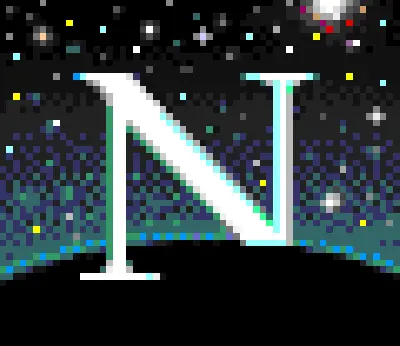- cross-posted to:
- [email protected]
- cross-posted to:
- [email protected]
The Gemini protocol is brutally simple, which makes it just about too useless for apps, tracking, and commercial purposes. Gemtext, the format for Gemini pages, is very basic; with about half as many features as markdown, it’s barely a step above plain text. As a result, Gemini is a small universe of blogs and personal sites.
Its simplicity makes it easy for people to create compatible clients and services for it. It’s self-hosting friendly and there are also hosting services, like smol.pub and some pubnixes.
Of course, you’ll need to get a Gemini browser or visit a Gemini-to-web proxy to access it.
I would consider renaming it so people don’t think it’s AI
Gemini protocol: 2019, Gemini crap machine: 2023. Google can change the name if they want.
Well yes but good luck.

The swastika was around wayy before the nazis started using it! They should change!!
What if that’s what the corpos want?
“Oh it’s the Tiniverse protocol now? Well check out Apple’s new Tiniverse microblogging product!”
I think you’re AI, maybe you should rename yourself.
In order to be artificial intelligence you need to be both artificial and intelligent, and I truthfully am neither
On the plus side, it appears at least you are honest!
You can just scrap the protocol and serve plaintext, or with just basic html tags like bold , links etc if you want to, works with any navigator.
What is the benefit of using a special navigator?
I’m asking because I think the idea kind of neat, and I’m working on something similar.
Because it was designed on purpose to not even have the ability to be enshittified. No scripting engine, on purpose – no popup ads. No cookies, no tracking.
Things that were originally thought as good things to add to the browser in retrospect have been abused so much, it’s better to not have them available for mis-use.
The issue is the structures motivating companies to enshittify. Not the technology. Blame late stage capitalism not JavaScript.
I will never NOT blame JavaScript for ANYTHING
You know JavaScript allows websites to be more local first, right? Apps that would otherwise require a server to handle a lot of the rendering logic. Sure, you can wish we had a front-end scripting language other than JavaScript, but modern JavaScript is pretty good actually. There’s been a ton of work by browsers to optimize performance, and TypeScript has made shipping JavaScript with confidence much easier. Facebook has made it possible with Hermes to ship bite code pre-compiled JavaScript. The entire JavaScript tool chain is currently being rewritten to Rust and Go for massive speed increases. I’ve been writing JavaScript for a decade, and it used to suck. It’s a wonderful time to write JavaScript.
I know what JavaScript is.
I’m saying any language could perform the same function.
My issue is with the design of the language and its gargbage feature set.
What would you change about JavaScript? Like specific language features you don’t like. Not general statements.
Types?
Edit:
For clarity, consider all the shit an actual real production scenario demands of layering on library after library and framework after fucking framework to make it usable.
Nobody even USES “JavaScript”, they use like 7 layers to try and turn it into a production ready environment.
Why.
Because JavaScript sucks.
Look at what they need to mimic a fraction of what other languages come with out of the box.
Try to learn it and you’ll see!
At least if you know programming beforehand.
This
Thanks. I’m building my own Lemmy client and I’m leaning very heavily on JavaScript 😅, but it’s 100% local first, only depending on the Lemmy API.
I’d love to see support for the protocol baked into the big browsers.
I really think we missed an opportunity to have an
app://protocol back in the ’00s instead of trying to kludge HTML into being software.Browsers could totally do multiple protocols. I think
ftp://andgopher://still works on most of them.Used to – I think both ftp:// and gopher:// have been removed by the big browsers (eg Chrome and Firefox).
Can’t have competing standards that might let us avoid ads now, can we?
B-but think of the golden parachute the Mozilla CEO can get!
This is a good question that’s often asked about Gemini. The creator addresses this in a part of the FAQ: Why not just use a subset of HTTP and HTML?
Personally, I find Gemini nice because its utter basicness guarantees that there’s no room for the kind of bullshit you might find on the web. Sure, you and some other nerds could make a “friendly HTML” club, but participation is voluntary and there’s no way to enforce the rules to keep the pages simple. And how would you know what sites are “friendly” just by looking at the hyperlink? Gemini creates a universe where sites have to be “friendly”; there is no other way.
Fair enough! Good points actually.
What I have seen with concepts like this is that’s infuriatingly hard to start. I tried getting on the rss bandwagon for example and it’s just not very user friendly IMO. Is there for example a Gemini search engine?
Will FF display a Gemini page as text only?
Where do you hang out and exchange links 😁 ?
Is there for example a Gemini search engine?
Yes. Two, actually (that I know of).
- gemini://tlgs.one
- gemini://kennedy.gemi.dev
Will FF display a Gemini page as text only?
Firefox doesn’t directly support Gemini, but you can view pages through a proxy like portal.mozz.us. Gemtext, the standard page format, has basic formatting syntax, and yes, it’s text only. There’s no mechanism for embedding images in pages - the best you can do is just link to them. In this one popular client, Lagrange, clicking on a link to an image displays it under that link, but other clients handle image links differently.
Where do you hang out and exchange links 😁 ?
I just lurk and read gemlogs (of course they can’t be called blogs, that’s short for web log!). There are sites with feeds of latest gemlog posts, and many sites that offer Gemini hosting have a list of recently updated pages. There are some minimal social networks, too. The front page of portal.mozz.us has a few links to these kinds of spots.
Saved!
Why not both? There are bridges that automatically convert and serve Gemtext to simple HTML for “regular” browsers.
In a similar manner, I wrote a set of scripts that takes gemtext source and creates both Gemini pages (by adding headers and footers) and static HTML pages (same but with some web-specific niceties - CSS, even JS snippets)
(And yes, I really enjoy gemtext markup for its simplicity)
geocities
snapshot of IE
Memory unlocked.
Maaaaan I tried to like Gemini but it’s all over the place being a “worse Gopher” of sorts. Not that I wouldn’t adopt it if it garnered more attention, but I feel like it’s made for pubishing “yellow pages”, not actual content.
I’m pretty interested in Gemini but the learning curve to self-host is pretty steep. Not sure why someone can’t just create a docker image for those of us who believe in self-hosting but haven’t the skills (yet) to CLI .
Agate is a popular and actively maintained server that only serves static files, and it hosts images on ghcr.io. It’s a pretty short Dockerfile.
Thanks. I’ll give this a go.










